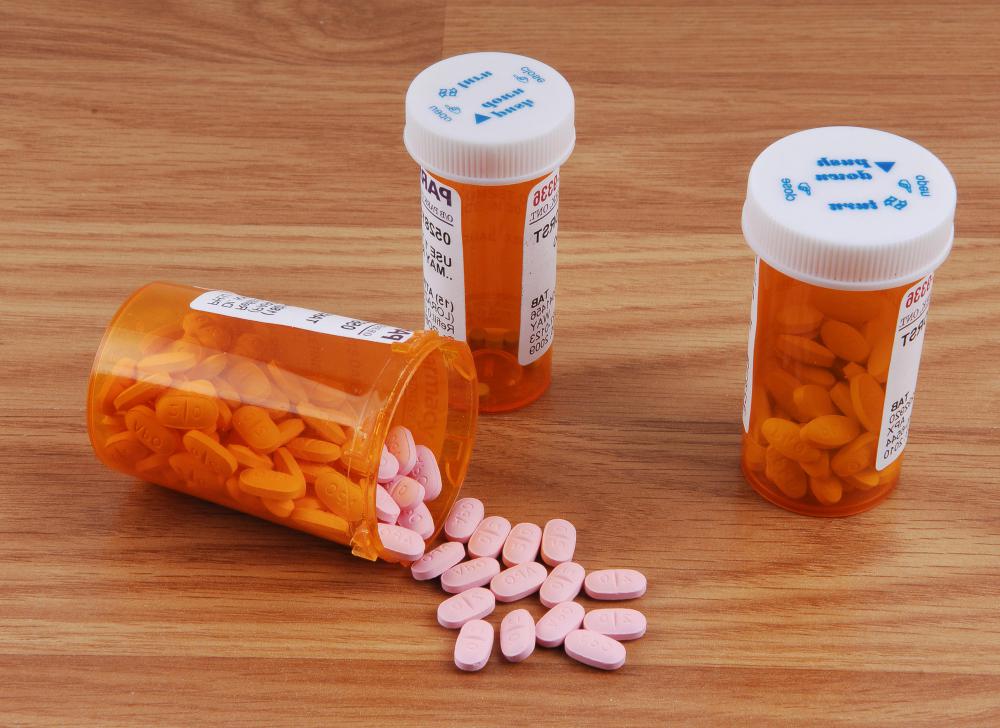At WiseGEEK, we're committed to delivering accurate, trustworthy information. Our expert-authored content is rigorously fact-checked and sourced from credible authorities. Discover how we uphold the highest standards in providing you with reliable knowledge.
What Are the Different Types of STD Treatments?
Individual STD treatments, or sexually transmitted disease treatments, whether they include medication or therapy, depend upon the types of STDs contracted. Prescription medications are usually necessary for treating an STD. Though a single dose of medication may be all that a patient needs in some cases, other STDs require lifelong treatments.
Antibiotics are common STD treatments for bacterial infections. Chlamydia, an STD caused by the bacteria Chlamydia trachomatis, can often be treated with a single or multi-dose antibiotic treatment in pill form. Another STD, gonorrhea, is often contracted simultaneously with chlamydia. It, too, is treated with antibiotic drugs. Intensive treatments may be administered to patients with severe cases of these disease, and patients can expect to return for a follow-up visit to determine if treatments were effective.

Syphilis, another bacterial infection, can usually be treated with a common antibiotic, such as penicillin. Patients are typically not given the medication orally as it has been shown to be ineffective against treating syphilis. Instead, the antibiotic is usually administered intravenously or through an injection.
Contagious skin diseases contracted through sexual contact, such as pubic lice or scabies, are usually treated with some type of topical pesticide, much like head lice is treated. A lotion, cream, or other topical agent is the most common method used to eradicate these types of STDs. Some skin diseases, however, may require an oral medication as well. As with all other STD treatments, a patient's sexual partners are also recommended to seek testing and treatment when a skin disease is treated.

STDs that cause skin bumps, such as molluscum contagiosum, can be treated in a variety of ways. Some physicians may prefer to drain the bumps while others prefer to remove them via lasers or freezing agents. Creams and other topical medications may also relieve patients of the virus. In most cases, however, molluscum contagiosum can disappear on its own within a few months. Topical creams or gels and freezing agents are also frequently used to treat genital warts.

Some STD treatments cannot cure their respective diseases. Viruses such as HIV, AIDS, and genital herpes do not have a cure. Though their symptoms can be treated with various oral medications or topical remedies, people who contract these diseases can expect to receive STD treatments for life. AIDS and HIV treatments are considered complex and depend upon each individual patient's case. Usually a combination of several medications, such as antiretroviral drugs, is required to treat symptoms of these STDs.
AS FEATURED ON:
AS FEATURED ON:
















Discussion Comments
Does anyone here know about genital wart treatments?
I received cryotherapy for my genital warts. The doctor basically froze them off with liquid nitrogen. The treatment worked and it wasn't painful, but the warts returned soon after. Cryotherapy also left some mild scarring.
Is there a better way to remove and prevent genital warts?
@burcinc-- If the antibiotics worked, you will be cured and most people are. Chlamydia is a bacterial infection. Only viral infections are carried forever, even when they're not active. For example, anti-viral medications can be taken for genital herpes and the individual may not have an outbreak. But he or she will always be carrying the virus in their blood and can infect others.
Bacterial infections are treated with antibiotics and they're gone for good. Sometimes a second course of antibiotics may be necessary though. This is why STD testing is done again after the antibiotic treatment to make sure that the bacteria is gone.
When bacterial STDs are treated with antibiotics, are they gone for good?
For example, if I have chlamydia symptoms and take antibiotics. Am I cured or will I continue to carry it?
Post your comments